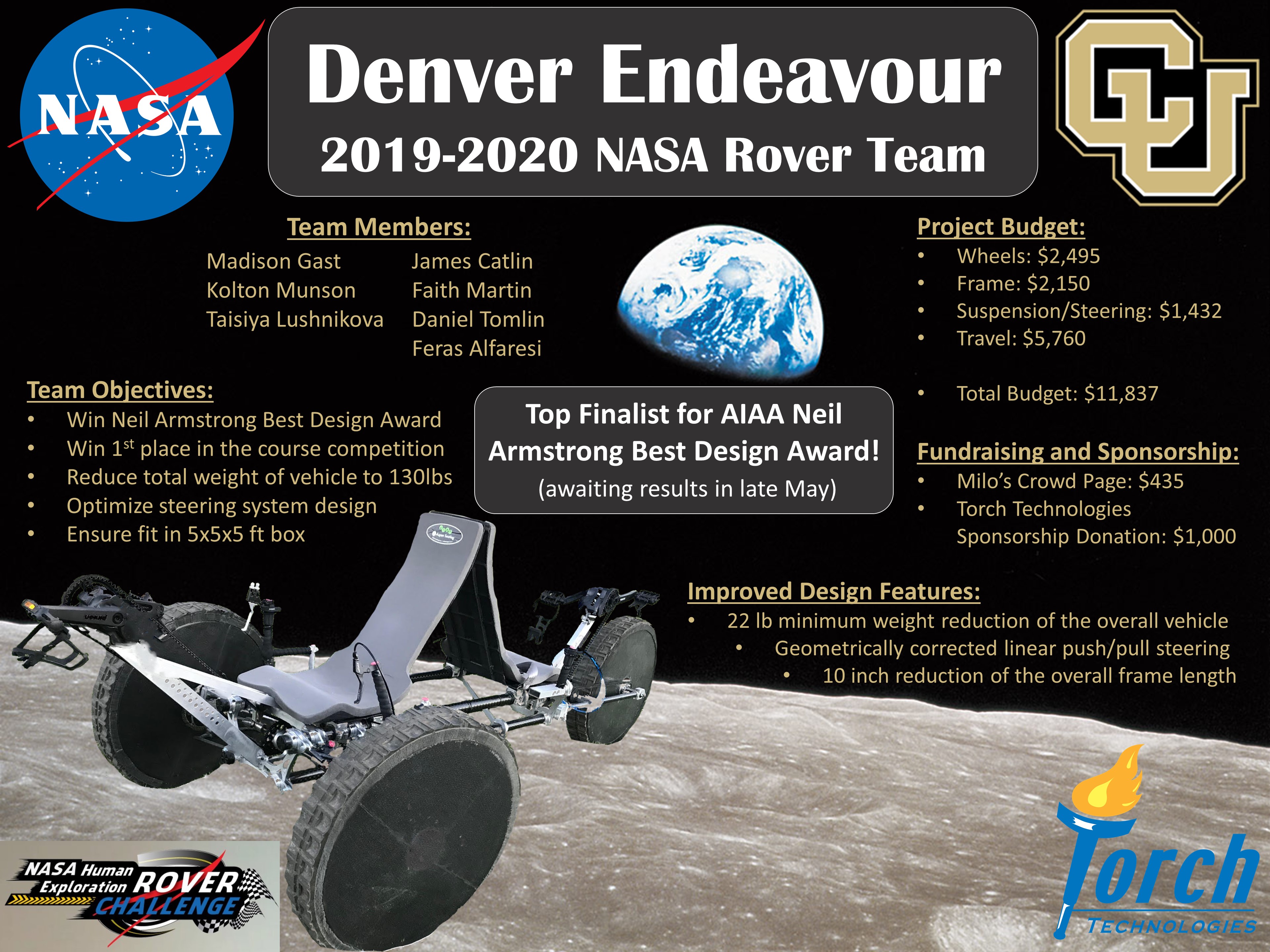Denver Endeavour – NASA Human Exploration Rover
Department of Mechanical Engineering
Project Abstract
The Denver Endeavour Rover team is a continuation of the Rover project at the University of Colorado Denver. Annually, NASA hosts its Human Exploration Rover Challenge in Huntsville, Alabama for International collegiate and high school teams to put their rover designs to the test. Denver Endeavour was seeking to place first in the competition. In addition, our team was eager to win the Neil Armstrong Best Design Award for having the best technical approach and best-engineered design for extraterrestrial terrain. A virtual award ceremony for the NASA competition will be held in May.
This year, the Denver Endeavour team focused on updating the steering system, wheels design, and frame design, of the previous rover to enhance its abilities on the competition course. The steering on the Endeavour was redesigned to correct complications made when torsion caused the steering to seize. The previous linear steering has been redesigned using parallelogram-like pitman linkages with corrected Ackermann geometry, which converts equal forward and backward linear motion at the handles to rotational motion at the pitman arm, turning the wheels. This new system is isolated from the rest of the rover frame in order to minimize torsion effects, seen from the previous team. The Denver Endeavour team redesigned and manufactured the wheels to reduce weight and decrease the chances of deformation while completing obstacles on the course. The wheels were designed as hollow, conical, carbon fiber shells, that housed a central aluminum wheel hub. The conical design allowed for the removal of internal supports and prevented the wheel from shifting laterally, thus reducing the stress on the carbon fiber shell. In addition, the new wheels were 25% lighter than the previous design. This year, the Endeavour included a custom hinge on the front pedal post, which allowed for the rover to fit within a 5’x5’x5’ cube, as specified by NASA. This hinge allows the front pedals to fold inward toward the seat, shortening the overall length of the vehicle by 9 inches.
At the present time, the Denver Endeavour team is eagerly awaiting contact from NASA, regarding the awards ceremony and we hope to bring a victory home to University of Colorado Denver.
